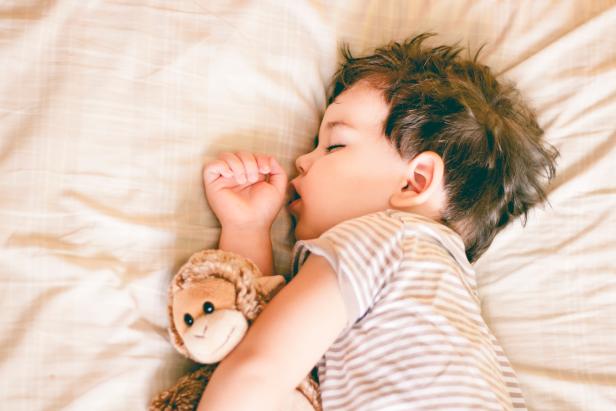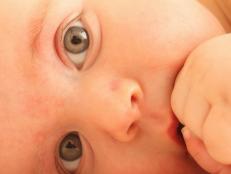Why Some Kids Give up Napping Sooner, According to a New Study
Here’s why you should encourage your preschooler to take a nap.


Click&Boo
When you’ve got a little one, it can feel like your whole day revolves around their nap. Then one day — poof! — they no longer need a mid-day slumber to help them carry on with their day. However, while some kids still catch a snooze all the way up to kindergarten, some toddlers drop their nap early on in preschool. So, why do some kids give up their naps sooner than others?
According to a study by University of Massachusetts Amherst, children giving up their naps is actually determined by the development of their brains and not their age. However, they say that many children aren’t given the opportunity to nap once they enter preschool, and this could negatively affect children who still need a mid-day sleep.
"This overarching theory is based on data that we’ve published over the past couple of years; it’s about putting the pieces together," says Dr. Rebecca Spencer, a sleep scientist at the university. "We provide support for a relation between nap transitions and underlying memory and brain development. This is a critical time of development in the brain and sleep has something to do with it."
When young children are napping, their little brains are working hard processing memories and skills they have learned. This processing happens in the hippocampus — the part of the brain that works like a storage room for this information before it gets moved to a more permanent place in the brain. When it’s time for this information to be processed, a child’s brain sends signals that it’s time to sleep so the brain can get to work.
"When the hippocampus is inefficient, it’s like having a small bucket," Dr. Spencer says. "Your bucket is going to fill up faster and overflow, and some memories will spill out and be forgotten. That’s what we think happens with the kids that are still napping. Their hippocampus is less mature, and they need to empty that bucket more frequently."
For some kids, giving up their nap happens because they enter a preschool that does not offer nap time. This means they may transition out of naps before their brains are ready. What parents might see is a preschooler who has a hard time managing emotions later in the day.
"[Nap-deprived children] are going to be hyper-attentive to that kid who's acting up in the corner or being silly or being grumpy, and they're going to be really reactive to that," Dr. Spencer says. "[But] if they nap, they can control that change of their attention, and how distracted they are by these different kinds of emotional things in their environment."
However, what happens when a child naturally no longer wants to nap?
"What we think happens is that the hippocampus develops so that it can hold more information," Dr. Spencer says. "When children are able to transition out of napping, that's when the hippocampus is able to hold that information throughout the day."
What should you do if your preschooler refuses to nap? Offer downtime so they can relax and possibly nap if needed. This could be quiet playtime, reading books, or snuggling on the couch with you. Try not to schedule appointments to "push through" the time your child could be resting or napping. While tempting, this could lead to unhappy kids and unwanted tantrums. You may need to move their bedtime up so that your non-napper can get to sleep earlier since they aren’t getting a break in the middle of the day.
YOU MIGHT ALSO LIKE:















